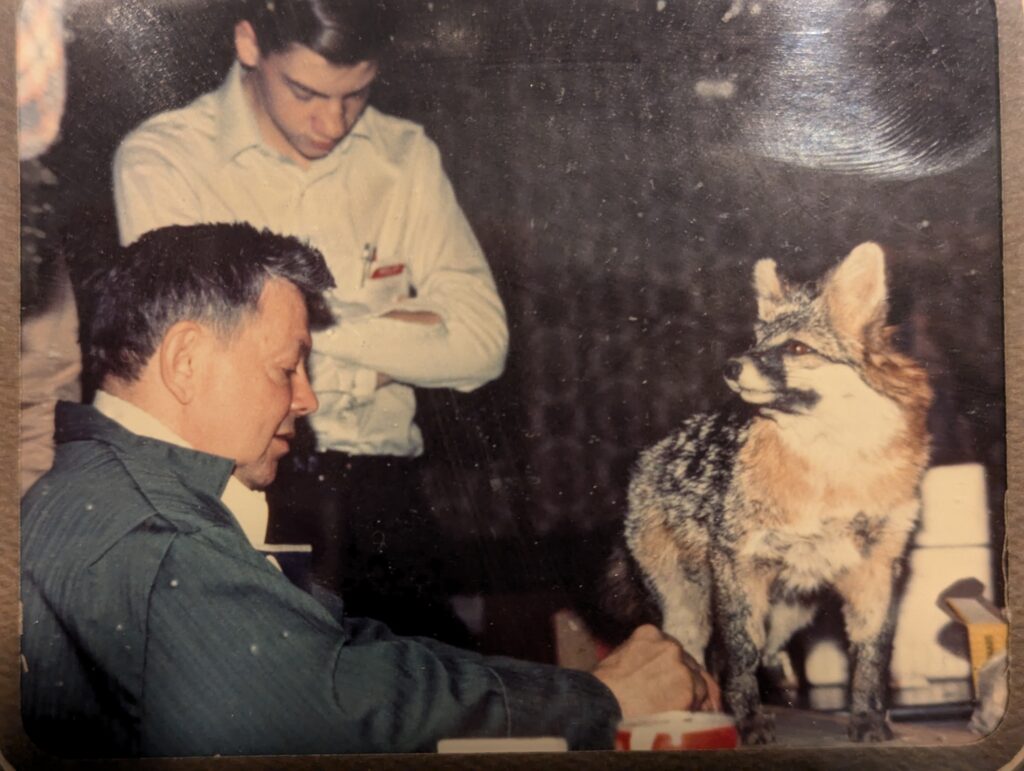The first Saturday of November ushers in Black Powder season for deer in Shenandoah County. Archery season has been in during October and Rifle Season will begin in two weeks. Hunters are making their last minute preparations as they envision the “big one” stepping out from behind that tree.
With the annual advent of the fall hunting seasons, it’s impossible for me not to remember this time of year in my father’s taxidermy shop along the Old Valley Pike. The visits from hunters, fishermen, and storytellers always spiked at this time of year.
Occasionally, a customer would ask Dad how he learned this unique trade and he quickly credited the GI Bill for paying for his apprenticeship under another taxidermist in Denver, Colorado. After finishing his time in the Army, Dad took advantage of this benefit earned through his service to learn skills that would support himself and his future family throughout his lifetime.
I didn’t know until just a few years ago that his first attempt was with a man who made fly fishing rods but somehow that didn’t work out. He then ended up with a Mr. Kaltenbaugh who taught him the basics of taxidermy. Today there are numerous home study courses, videos, and YouTubes available but none of those existed back then. I’m embarrassed to say I don’t know how long his apprenticeship lasted nor how much it cost, but it certainly succeeded in getting him established.
Ironically, Dad’s mentor once told him that he’d make a good assistant but never a taxidermist. Although the man must have known taxidermy, he didn’t know prophecy for Dad went on to mount far more animals over the next 60 years than his mentor ever did.
There are few trades today learned through this ancient method of apprenticeship where the mentor passes to the mentee all the knowledge and skills required to succeed in that field. For many years, there were closely guarded secrets that protected existing practitioners from being undermined through competition. Private guilds were common within which members shielded themselves and their industries from amateurs attempting to steal their business.
While that was a poor way to promote literacy and education, it did prevent many of the scammers from taking advantage of the unsuspecting. Thankfully many trades and industries today have professional organizations that advocate for high standards and provide continuing education for their members. In addition, many provide certifications that can help consumers distinguish between the trustworthy and those less so. There’s even a National Taxidermy Association that sponsors seminars, competitions, and conventions.
The idea of guarding secrets has been a part of civilization since the beginning. Even in the Bible, we read about how the Philistines knew how to work with iron and forge weapons. The Israelites apparently did not have this technology and actually had to go to their enemies to get plow points and spears sharpened. Although the Bible doesn’t tell us, I wonder if the future King David learned these secrets and brought them back to Israel to help solidify his kingship.
Thankfully, there is nothing secret about the Gospel of Jesus Christ. It is free and open to all and Jesus even told His followers to share it with all the world. There is no one anywhere from whom this soul-saving eternity-changing information should be kept! Jesus’ Great Commission commands those who trust in Him to go and make disciples of all nations and teach them to obey all of His teachings. There have sometimes been secret societies within Christendom, but that was never Jesus’ intent!
Although there are no trade secrets for Christians, there are disciplines to learn and truths to be taught. These are all free but require a lifetime to acquire and master. As we remember the days of apprenticeships and guilds, praise God that there are no secrets of salvation and may we pass it on to others! Blessings, George
